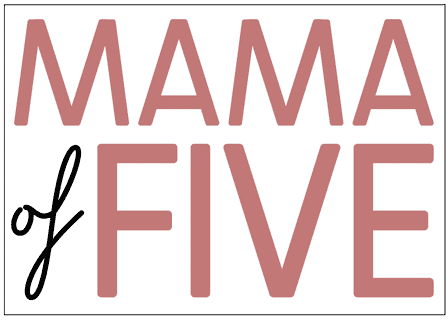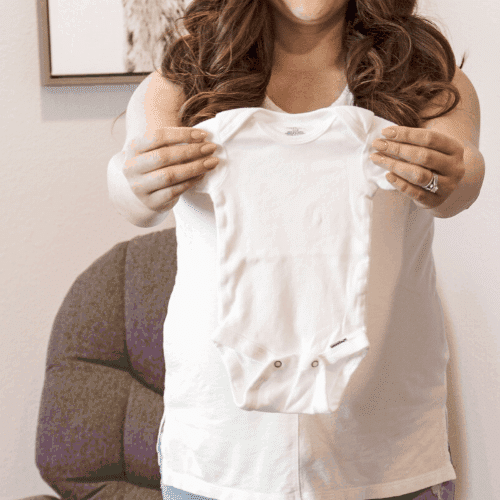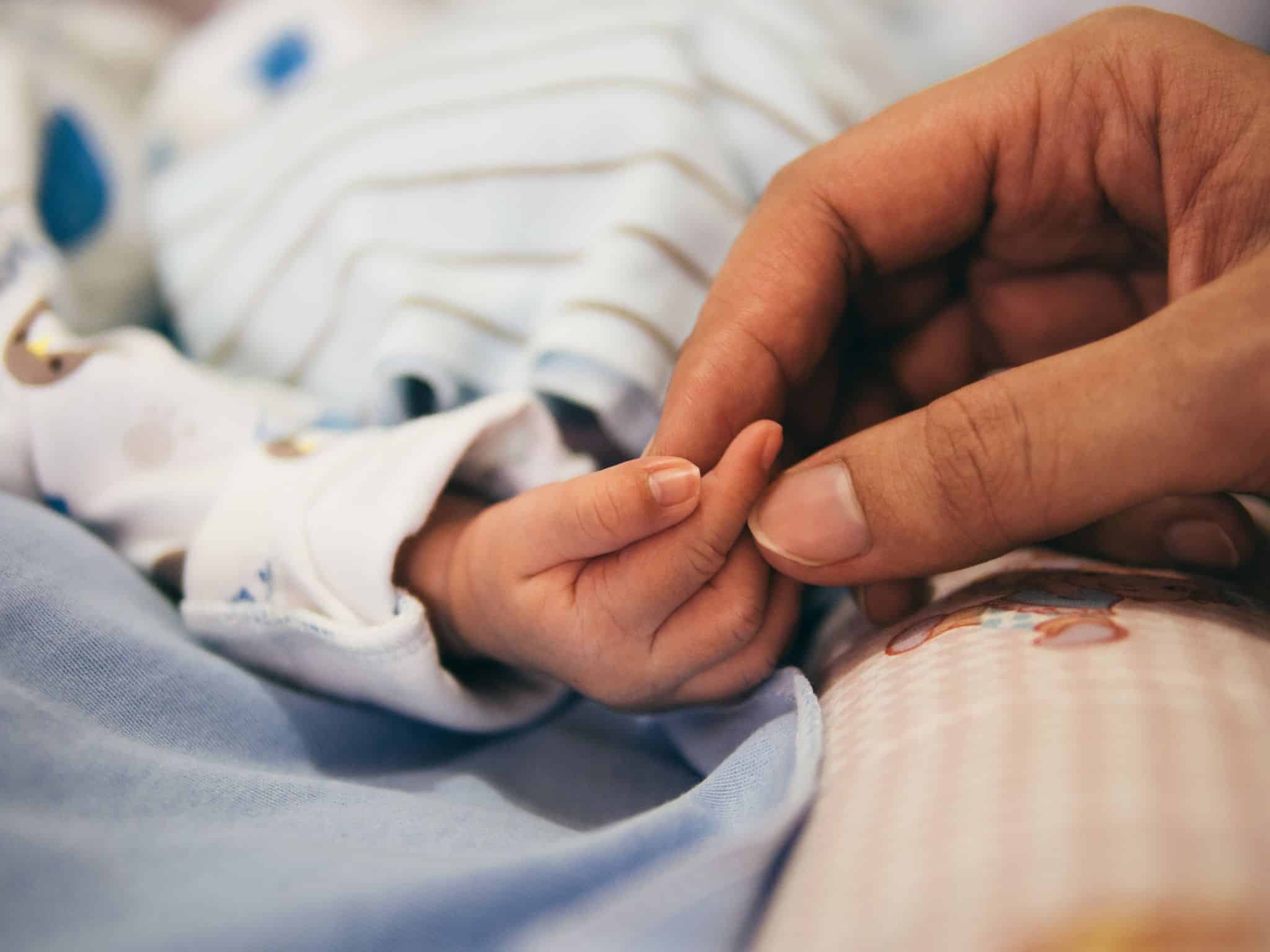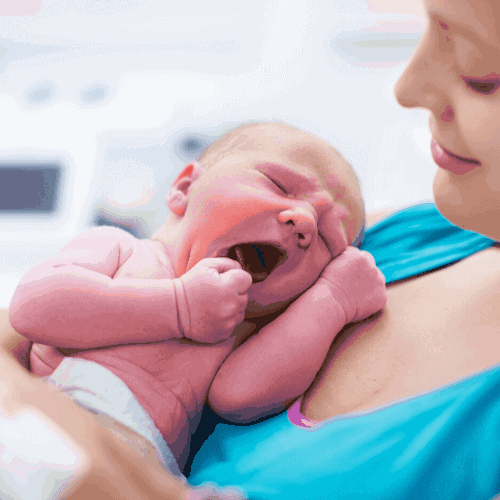Many new mothers that have recently had a c-section may worry about the scar left behind after the incision during the procedure. In particular, they worry about the complications that may occur post-surgery.
Mothers-to-be may also be interested in researching complications that can arise from a c-section.
One specific fear mothers have is that the wound from the c-section incision may open back up during the healing process.
It is natural to worry about complications post-c-section. After all, it is major surgery, and it is a lot to handle; what with a new little one coming into your life as well!
In this article, I am going to give you the low-down on everything you need to know about a potential incision wound opening so you feel more at ease and reassured that you have the information you need.
How does your doctor decide the incision used?
Having a c-section involves an incision to be made across your abdomen. The incision is likely to be made horizontally just above your pubic bone or vertically down your lower stomach.
Your surgeon will decide which method is most appropriate for your situation.
Usually, the main criteria used is how the baby is positioned in the uterus (i.e., whether they are in a breech position or not).

How long does it take a c-section incision to close?
During your cesarean procedure, your incision will either be closed with dissolvable stitches, non-dissolvable stitches, or staples.
If you are given staples or non-dissolvable stitches, you will be asked to return to the hospital seven days after giving birth to have them removed.
After this, it takes c-section incisions approximately six weeks to heal – though many women report this taking much longer.
Some studies suggest it can take as long as 24 weeks.
Why do c-section incisions open?
Incision scars are vulnerable to opening during recovery. There are many reasons why your c-section wound could rupture.
Too much movement
After your c-section, your doctor will tell you to take it easy and not exert yourself too much for the next six weeks while your wound closes. And there is a good reason for it.
Your c-section wound is very vulnerable. One stretch too far, and you might be faced with a rip in your incision wound.
Exercising and heavy lifting can aggravate your wound and make it harder to heal too.
Infection
If your incision wound gets infected, it may open and start discharging fluids.
Infections can happen for many reasons, from improper aftercare of your wound to your body simply finding it hard to heal.
Tight-fitting clothes
Tight-fitting clothes may rub against your incision, causing it to get irritated. This can lead to your incision opening by either stretching the skin too much or causing an infection.
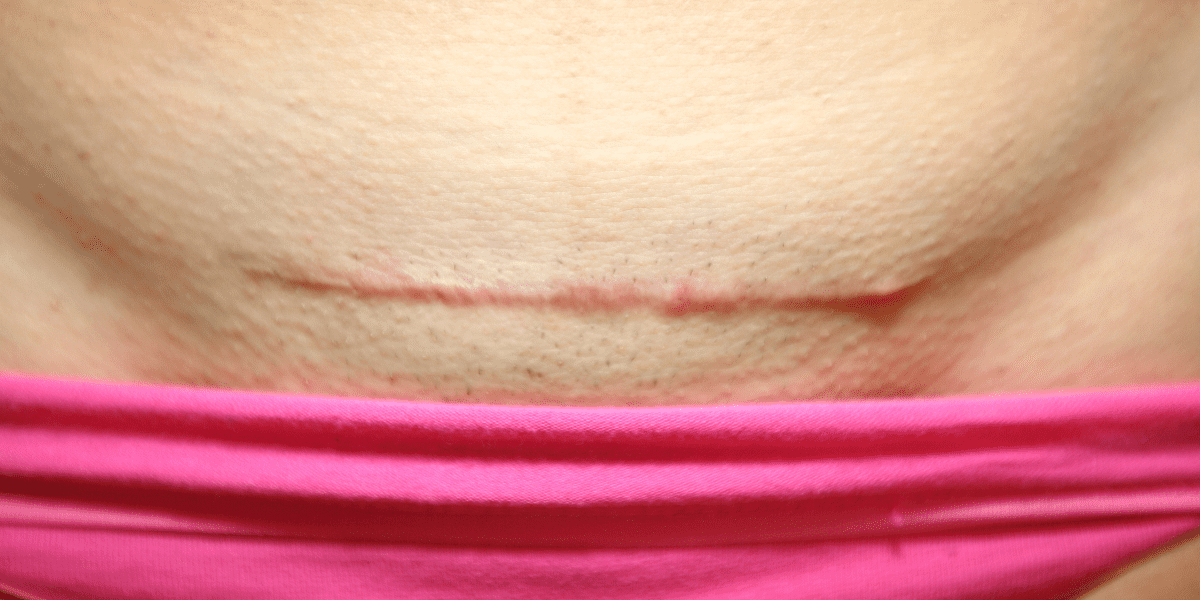
Hernia
On rare occasions, you may develop a hernia. In some of these instances, the hernia may push against the wound, causing it to open.
What do I do if my c-section incision opens?
If your cesarean incision opens, it is imperative to seek medical care immediately. Ignoring it will only make the problem worse as an open wound is more susceptible to infection.
Alongside a visible opening, you may also suffer from the following symptoms:
- High fever
- Abdominal pain
- Discharge from the incision
- Vaginal bleeding
- Nausea
- Dizziness
- Chest pain
- A bad smell coming from the wound
The wound needs to be re-closed, and your doctor needs to check to make sure there are no further complications.
They will check to ensure everything is ok inside – no internal ruptures, hernias, or organ movement.
If your c-section incision opens because of an infection, your doctor will need to prescribe you antibiotics.
How to prevent your c-section incision from opening
While there is no guaranteed way to prevent your c-section incision from opening, there are many things you can do to decrease the likelihood.
Keep your movement limited
Doctors recommend no exercise or sex for the first six weeks postpartum. This is the same, no matter what type of birthing experience you had.
For mothers that have had a c-section, it is essential to follow this advice. The vigorous movements involved in exercise or sex could overstretch the healing skin, increasing the risk of your wound opening.
Instead, you should opt for light walks to get your body moving without causing stress on your wounds.
No heavy lifting
It is recommended that you do not lift more than 10lbs, or the weight of your baby, for the first six weeks of healing.
This is so you don’t put your body under unnecessary stress.
You may find it easier to hold your baby in the football position (holding them on your side horizontally) if your incision area is particularly sore.
Clean your incision wound properly
Your doctor will provide you with all the information you need to care for your wound at home so it can heal properly.
The most important thing to remember is to use water to clean your wound and make sure to dry the area thoroughly by patting it dry with a towel.
Be very careful when drying as any vigorous rubbing could cause infection or for the skin to pull and rip open.
Look out for infection warning signs
If you can spot the signs of infection listed in the section above, you may be able to avoid reaching the point where your incision opens.
This is why it is always important to contact your doctor at the first sign of infection – it may prevent you from a whole host of unwanted complications!
Maintain a healthy diet
By keeping a healthy diet full of nutrients, you will help your c-section wound to heal quicker.
Focus on including a variety of fruit and vegetables, proteins, whole grains, and healthy fats to ensure your body has the vitamins, minerals, and proteins it needs to build healthy new tissue that will help your wound heal.
By supporting the healing of your scar, you reduce the risk of it ripping open, which, as we know, can cause some unwanted complications.
Stay hydrated
A crucial part of skin health is keeping hydrated. Dehydrated skin does not heal as fast, as it becomes dry and fragile.
On the other hand, hydrated skin can help improve skin elasticity and aid recovery on wounds.
As a busy, tired mother, it can be hard to remember to take a moment to have a drink of water. Therefore, I would recommend always keeping a water bottle with you so that it is easy to reach.
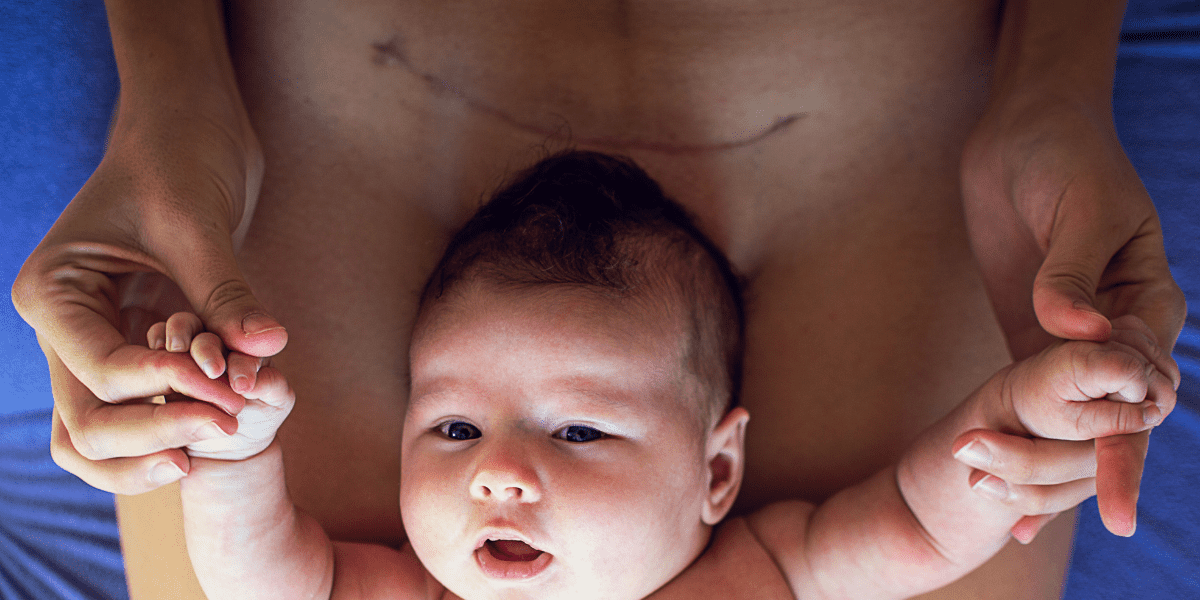
Wear loose clothing
While your cesarean incision heals, it is very fragile. Wearing tight-fitting clothes or clothes with waistbands that hit around your scar can lead to chafing and irritation.
In turn, this can cause the skin to pull open, or in some cases, for the scar to become infected.
To ensure this doesn’t happen, make sure to wear loose-fitting, comfortable clothes that give your c-section incision room to breathe and heal.
Treat swelling with ice
It is normal to have some swelling around the site of your c-section. However, if the swelling gets too much, it could cause your incision to open.
To help the swelling go down, use an ice pack from time to time.
Be aware that swelling could be a sign of infection. If you are worried this may be the case, please contact your doctor as you may need further treatment.
Will my incision scar disappear?
Some women worry that their scar will be evident for the rest of their lives, especially if they have complications during recovery, such as their incision opening.
For most women, the scar will fade over time and become faint. It will turn from bright red to pale. On women with darker skin, their scar may be more noticeable.
If you had a horizontal incision above the pubic bone, when your pubic hair starts growing back, you’ll find that the hair hides the scar pretty well.
Using moisturizers specializing in stretch marks and scar reduction may help, although there is no definitive research suggesting these creams are effective.
Some women swear by them, though, so it may be worth considering if you are concerned about the appearance of your scar.

Recovering from a c-section is hard work! Juggling a baby with healing is no easy feat that can be made harder by fears of complications during recovery.
While it is unlikely your incision will open, it does happen, but by taking the easy steps laid out in this article, you will be able to reduce the risk of this happening significantly.
Make sure you take care of yourself and don’t push yourself too far, lean on your community for help, and when it feels like too much – cut yourself some slack.
And finally, when in doubt, remember it is always better to ask for medical help than to wait!
Keep staying strong, mamas!
